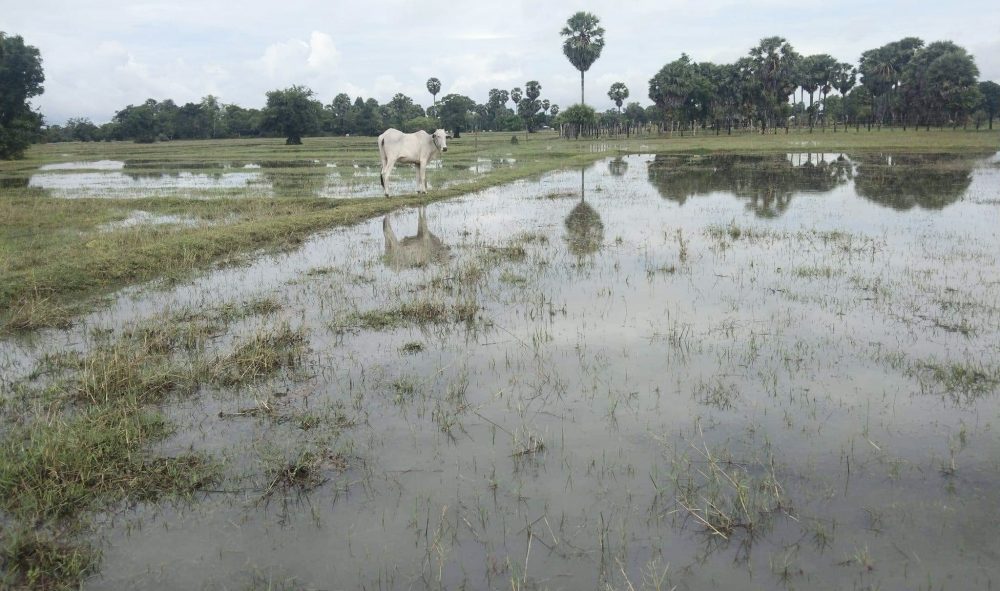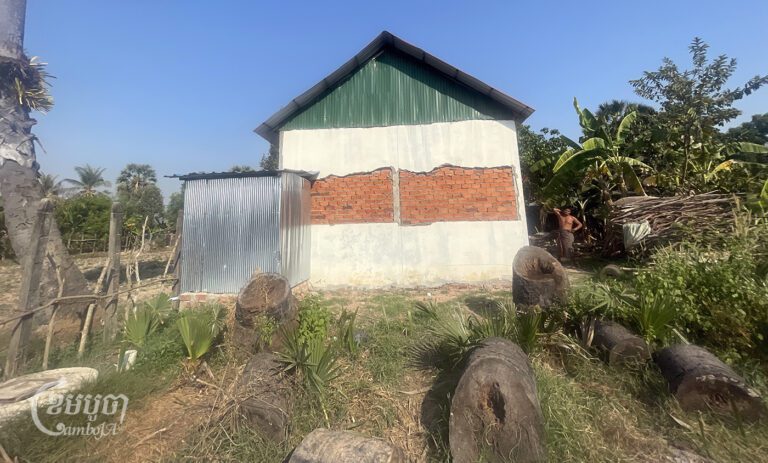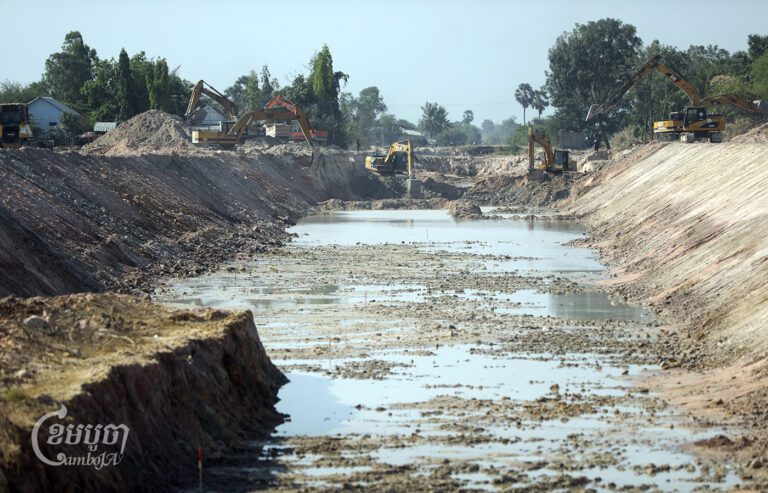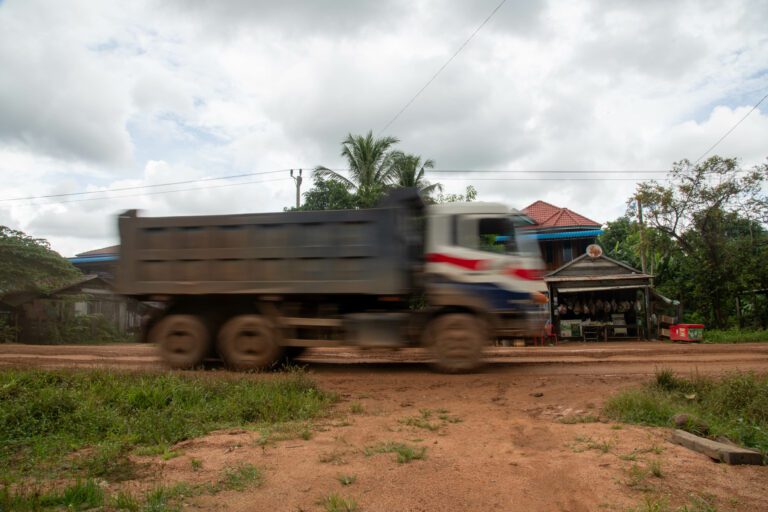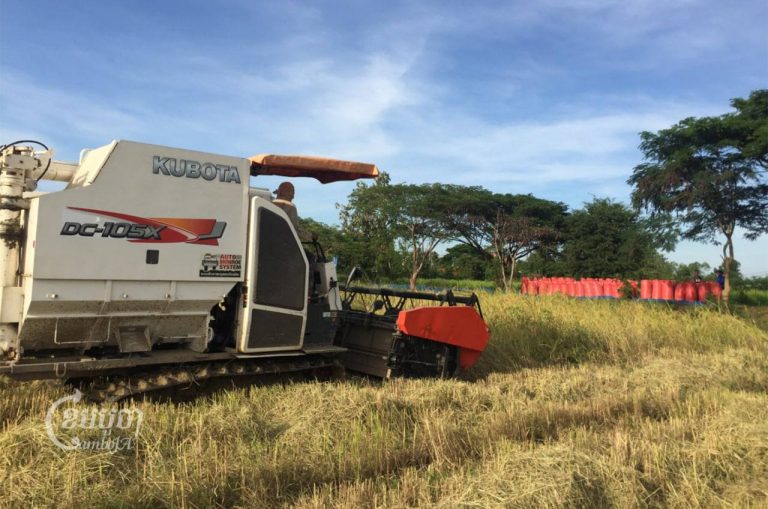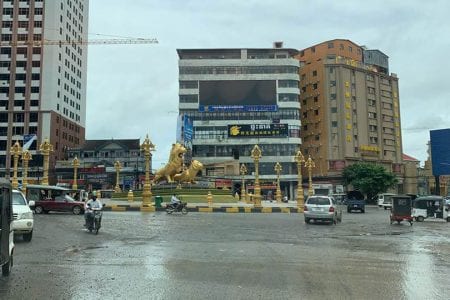Ouk Chhorn, a 60-year-old farmer in Siem Reap province, is having a disastrous planting season so far. Not only has flooding washed away his seeds, but heavy rains are continuing and the price of fertilizer has also shot up.
The rains came unexpectedly early this year, said Mr. Chhorn, who lives in Kampong Trayorng village in Puok district, and because of last year’s insufficient harvest he was already low on seeds to sow.
“I have three hectares and I sowed my rice seeds in May, but there’s been damage to more than one hectare of that land due to flooding,” he said, adding that he couldn’t afford to sow his fields again.
He’d already used fertilizer on his paddy, he said, which costs up to 25,000 riel (about $61) a bag. Globally the price of fertilizer has also shot up due to sanctions on Russia, which is among the world’s largest exporters of the commodity.
Mr. Chhorn said that despite discussions with local authorities about the flooding issues affecting farmers’ crops, nothing had been done to help villagers yet.
This month, the Ministry of Agriculture warned that the rainy season would be heavier this year, affecting the cultivation of rice, especially in the central lowlands, where farmers sowed their paddies early.
Em Reatrey, a 26 year-old farmer in Puok district’s Chreas village, has had similar problems to Mr. Chhorn.
“Last year there was a delay [in farming] because the villagers had already sowed their fields but then there was no rain,” he said. The opposite happened this year, he said as “because there was a lot of water, it was not possible to sow.”
Having first sowed his own fields at the end of April, only to have them destroyed by the rains, Mr. Reatrey says he’s now going to have to sow them a second time – at great expense.
“It is also difficult because of the high cost of fertilizers and renting a tractor,” he added.
Another farmer, Phong Sith, 43, who lives in Chi Kraeng district in Siem Reap province, told CamboJA that himself and other villagers had not planted rice yet at all due to the flooding.
“I do not know whether I’ll be able to sow at the beginning of July or the end of July. In previous years I’m already done by now,” Mr. Sith said.
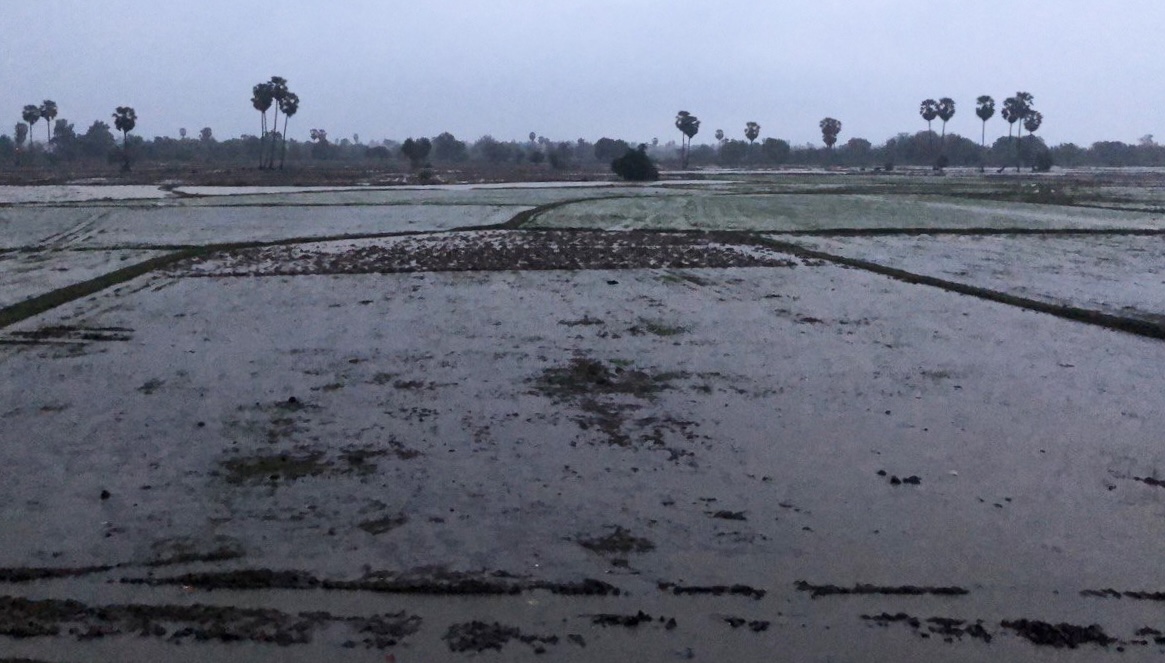
Tea Kimsoth, director of the Siem Reap Provincial Department of Agriculture, said that he’d inspected the flooded sites and the worst-affected area was Kdei Run commune in Puok district.
“Kdei Run commune was flooded and about 130 hectares were completely damaged. But the water has receded in some of the higher areas and the (rice) was revived,” Kimsoth said.
But he said that farmers in some places are going to have to plow and sow again.
“So far, about 20% of people have planted this year, compared to previous years when 60% to 70% of farmers in Siem Reap province had already planted,” Mr. Kimsoth added.
He said every year, authorities help provide rice seeds for farmers in the province, but this year there have been some bureaucratic delays.
Veng Sakhon, Minister of Agriculture said that only four provinces were thriving and cultivating faster than last year: Ratanakiri, Mondulkiri, Kratie and Stung Treng. In more than 20 other provinces, planting had been delayed because there was no dry season this year and floods have made it impossible for farmers to plow.
“They [farmers] are in a hurry to start plowing and sowing,” he said.
“The ministry has also requested the provincial Department of Agriculture, Forestry, and Fisheries to cooperate with local authorities to submit a request to the Food Preparation Commission chaired by the Ministry of Economy and Finance,” he added.
He also said he was hamstrung by bureaucracy, because whereas his ministry had previously been able to distribute seeds directly to farmers, the process now went through the Ministry of Economy and Finance.
“No matter where I go, I cannot bring the seeds. It requires them [farmers] to prepare a proposal for the Ministry of Finance to provide seeds for the people,” he said, adding that it could take some time.
But San Sina, technical officer at the Secretariat of the Food Reserve System Management Committee at the Ministry of Economy and Finance, said the ministry was addressing the problem.
“The Secretariat team is working closely with sub-national authorities…to screen farmers for compliance with the criteria necessary to access the rice seeds,” he said.
Theng Savoeun, president of the Coalition of Cambodia Farmers Community Association (CCFC), explained that climate change was behind the problems.
“Even though the rainy season started early this year, what we are worried about is that at the end of the year there will be no rain. It is then that people’s agriculture faces a lack of water and damages crops,” he said.
He said it is difficult for people to adapt to climate change and called on the government to educate people about how to prepare and respond to crises like droughts and floods.
“The ministry and the authorities need to take action by researching which varieties of crops are available in the short term that can help people harvest quickly and whether the seeds are weather-resistant so that farmers can use them despite climate change,” he said.


